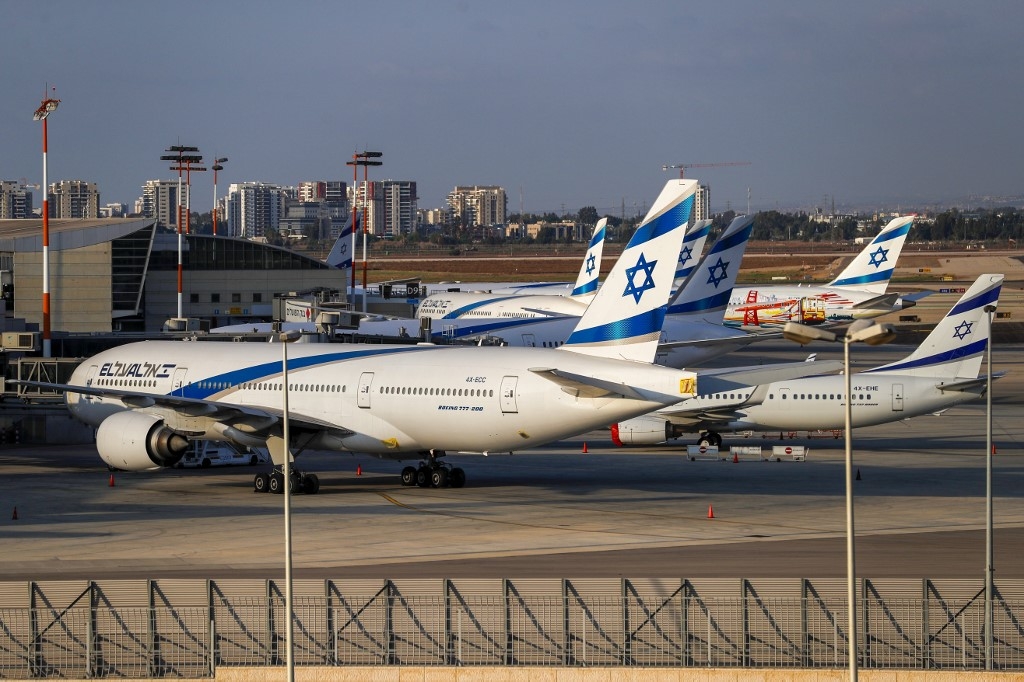Israel and Jordan sign aviation deal to cut time and costs for Gulf flights

Israel and Jordan signed on Thursday an aviation agreement to allow international flights to cross their airspace en route to various destinations.
The agreement has been years in negotiations, but it was hastened after the UAE and Bahrain signed a normalisation deal with Israel on 15 September and Saudi Arabia announced it was opening its airspace for Israeli flights, Walla news reported.
The aviation agreement is set to shorten the length of flights between Gulf states, Asia, Europe and North America, and is expected to cut emissions and save costs.
The deal, signed by Jordan and Israel’s civil aviation authorities, will take effect on Friday.
At first the airspaces of both Israel and Jordan will be open for seven hours from 11pm until 6am local time. It will be also be open for 12 hours during the weekends, and for 24 hours during holidays.
New MEE newsletter: Jerusalem Dispatch
Sign up to get the latest insights and analysis on Israel-Palestine, alongside Turkey Unpacked and other MEE newsletters
Israel’s transportation ministry thanked the European Air Transport organisation for making the agreement “possible”.
Miri Regev, Israel's transport minister, said "once again we are breaking new boundaries, and this time in the air”.
"We are opening up new ways of transport, economic and political cooperation with countries that share similar borders and interests with us and share the vision of regional peace," Regev added.
"I hope that soon we will be able to announce further developments."
The Israeli-Jordanian agreement came after the UAE and Bahrain also allowed Israeli planes to cross their airspace in September.
El Al, one of Israel biggest aviation companies, is currently operating a weekly cargo flight to Dubai, and Israir signed a contract in September to see it run flights to the UAE.
These agreements with the UAE are expected to bring down flight prices to and from countries in Asia and the Indian subcontinent.
Middle East Eye delivers independent and unrivalled coverage and analysis of the Middle East, North Africa and beyond. To learn more about republishing this content and the associated fees, please fill out this form. More about MEE can be found here.





